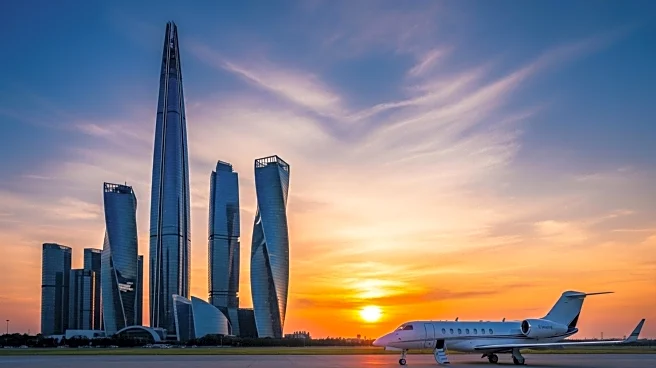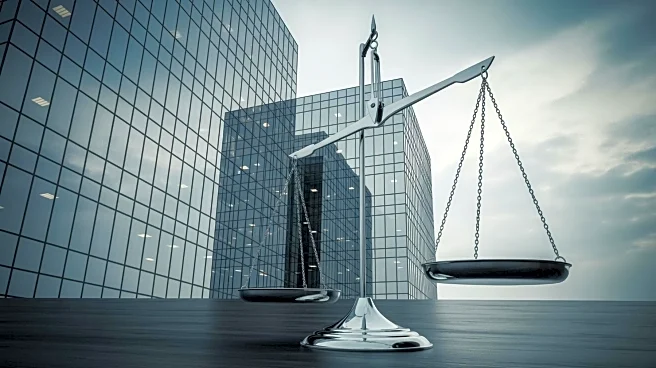What's Happening?
Dubai has emerged as a prime destination for the ultra-wealthy, particularly attracting millionaires from Western countries. The city's appeal lies in its zero income tax policy, political stability, and a lifestyle that embraces luxury. According to Henley & Partners, the UAE is expected to attract 9,800 millionaires this year, surpassing any other country. The real estate market in Dubai is thriving, with 435 homes valued at $10 million or more sold last year, outpacing New York and London. This influx is driven by wealthy individuals seeking a more favorable tax environment and a better lifestyle. However, the city also faces criticism for stark inequalities, as low-wage migrant workers often face exploitation.
Why It's Important?
The migration of millionaires to Dubai highlights a significant shift in global wealth distribution, with implications for both the UAE and the countries losing affluent residents. For Dubai, this trend boosts the local economy, particularly in real estate and luxury services, while enhancing its status as a global financial hub. Conversely, countries like the UK may experience economic impacts due to the loss of high-net-worth individuals, potentially affecting tax revenues and investment. The situation also raises ethical concerns about wealth inequality and the treatment of migrant workers in Dubai, which could influence international perceptions and policies.
What's Next?
As Dubai continues to attract wealthy expatriates, it may face increased scrutiny over its financial practices and human rights record. The UAE's recent removal from an international 'grey list' following a crackdown on financial crime suggests a willingness to address some concerns. However, ongoing criticism regarding labor conditions for migrant workers may prompt further reforms. Additionally, other countries may consider policy changes to retain their wealthy citizens, potentially leading to shifts in global tax and immigration policies.
Beyond the Headlines
The influx of millionaires to Dubai could lead to long-term cultural and economic shifts within the city. As more Westerners settle, there may be increased demand for international schools, cultural institutions, and services catering to expatriates. This could foster a more diverse and cosmopolitan environment, but also exacerbate existing social divides. The focus on luxury and wealth normalization in Dubai contrasts with growing global discourse on wealth inequality, potentially influencing future economic and social policies both locally and internationally.









